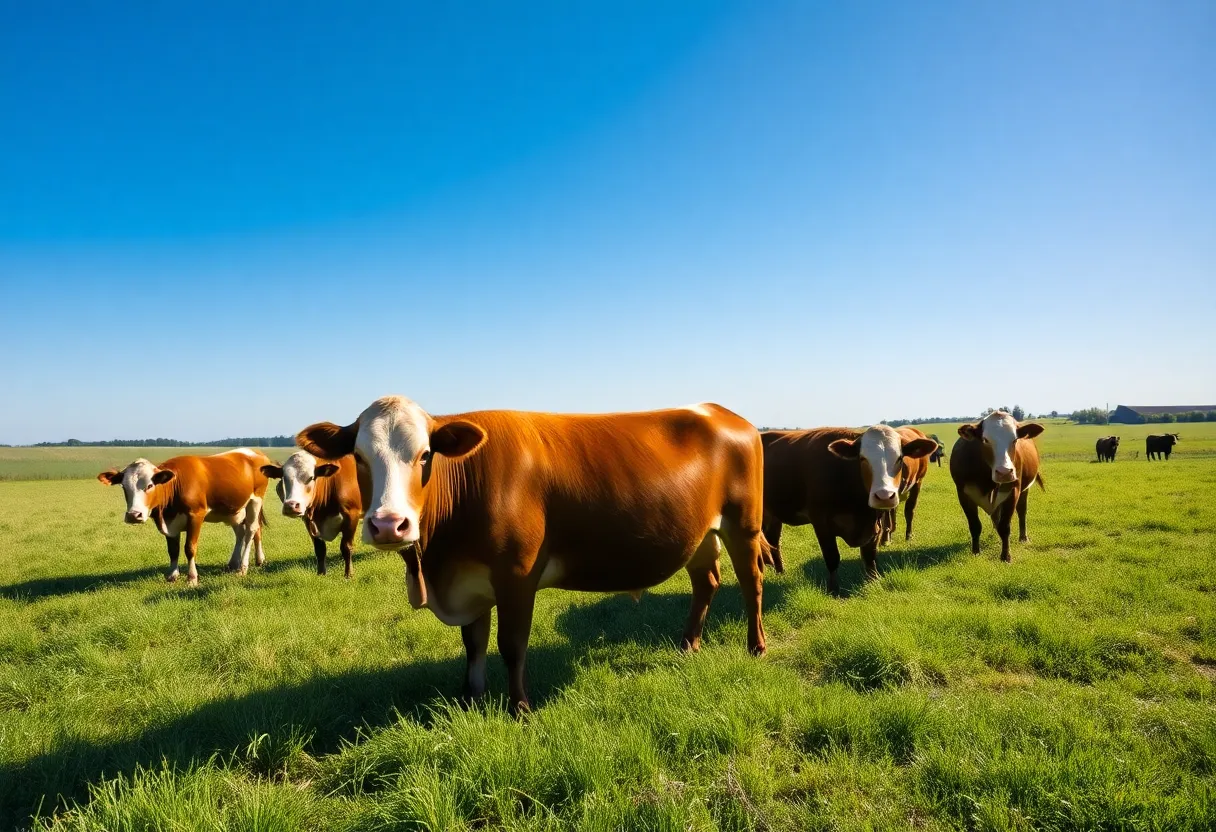News Summary
Georgia State Representative Robert Dickey is advocating for legislation to implement state inspections of grass-fed cattle operations. This initiative seeks to enhance transparency in beef marketing by clearly defining terms like ‘grass-fed’ and ‘corn-fed.’ The proposal comes amid rising consumer demand for grass-fed options as health-conscious shoppers prioritize transparency. The bill has drawn both support and criticism from industry stakeholders, emphasizing the need for better labeling and consumer education while cautioning against added bureaucracy.
ATLANTA – Georgia State Representative Robert Dickey is pushing for legislation that would implement state inspections of grass-fed cattle operations in an effort to enhance transparency and protect consumers from misleading marketing practices. As the chairman of the House Agriculture and Consumer Affairs Committee, Dickey’s proposal addresses growing concerns over the definitions and standards surrounding grass-fed beef.
The proposed bill aims to clarify what constitutes terms like “grass-fed,” “corn-fed,” “pasture raised,” and “organic,” a topic that has gained significant attention as the popularity of grass-fed beef continues to surge among health-conscious consumers. Many individuals prefer grass-fed options believing they are fresher, free from preservatives, hormone injections, and genetically modified organisms (GMOs).
Dickey initially introduced the proposal during the 2025 legislative session, which previously saw a similar bill, aimed at ensuring shrimp labeling requirements for restaurants, pass the House but ultimately fail in the Senate. The earlier legislation, known as HB 117, sought to enhance consumer transparency by requiring restaurants to verify the sources of the shrimp they served.
Currently, no detailed specifics on how the definition of grass-fed will be established or the associated costs for such inspections have been outlined. Dickey is actively seeking input from consumers, beef producers, and various industry stakeholders to gather support before the bill is formally introduced. The Georgia Department of Agriculture will assess the feedback to determine if there is sufficient backing for the proposed legislation.
The regulation of grass-fed beef labeling was previously overseen by the U.S. Department of Agriculture. However, the USDA withdrew from this role in 2016, leading third-party inspectors, such as the American Grassfed Association, to take on certification responsibilities. One notable challenge remains in defining what constitutes “grass-fed” beef, as many cattle start life on a grass diet but may be finished on grain.
Support for the push for transparency exists within the grass-fed community, with some producers emphasizing the necessity for clear distinctions among beef categories, such as “grass-fed,” “grass-finished,” and “grain-fed.” However, others, like Phillip Bridges, argue against the imposition of additional state inspections stating that it could add unnecessary bureaucracy to the industry. Bridges already participates in the Georgia Grown program, which provides some level of consumer verification.
Will Harris, a notable figure in the grass-fed beef sector, acknowledges the need for transparency but expresses concerns that the industry is already facing challenges due to excessive labeling mandates. He advocates for better education to help the public understand the nuances between different types of beef, especially regarding the varying feeding practices cattle might undergo during their lifecycle.
In response to the proposed legislation, Georgia Agriculture Commissioner Tyler Harper has indicated a willingness to collaborate on any developments, highlighting the importance of balancing consumer interests with those of producers in the agricultural sector. This legislative proposal is poised to reshape how grass-fed beef is marketed and understood in Georgia, in the wake of evolving consumer preferences and demand for transparency.
As the proposal moves forward, all eyes will be on how the discussions unfold within the Georgia legislature and how stakeholders from various sectors respond to the call for enhanced clarity in the grass-fed beef marketplace.
Deeper Dive: News & Info About This Topic
- Georgia Recorder
- USA Today
- Northwest Georgia News
- AJC
- Creative Loafing
- Wikipedia: Grass-fed beef
- Google Search: grass-fed beef regulations
- Google Scholar: grass-fed beef standards
- Encyclopedia Britannica: grass-fed
- Google News: grass-fed beef

Author: STAFF HERE AUGUSTA WRITER
The AUGUSTA STAFF WRITER represents the experienced team at HEREAugusta.com, your go-to source for actionable local news and information in Augusta, Richmond County, and beyond. Specializing in "news you can use," we cover essential topics like product reviews for personal and business needs, local business directories, politics, real estate trends, neighborhood insights, and state news affecting the area—with deep expertise drawn from years of dedicated reporting and strong community input, including local press releases and business updates. We deliver top reporting on high-value events such as Arts in the Heart Festival, Westobou Festival, and Masters Week. Our coverage extends to key organizations like the Augusta Metro Chamber of Commerce and Greater Augusta Arts Council, plus leading businesses in manufacturing and healthcare that power the local economy such as Textron Specialized Vehicles, Cardinal Health, and Nutrien. As part of the broader HERE network, including HEREAtlanta.com and HERESavannah.com, we provide comprehensive, credible insights into Georgia's dynamic landscape.


